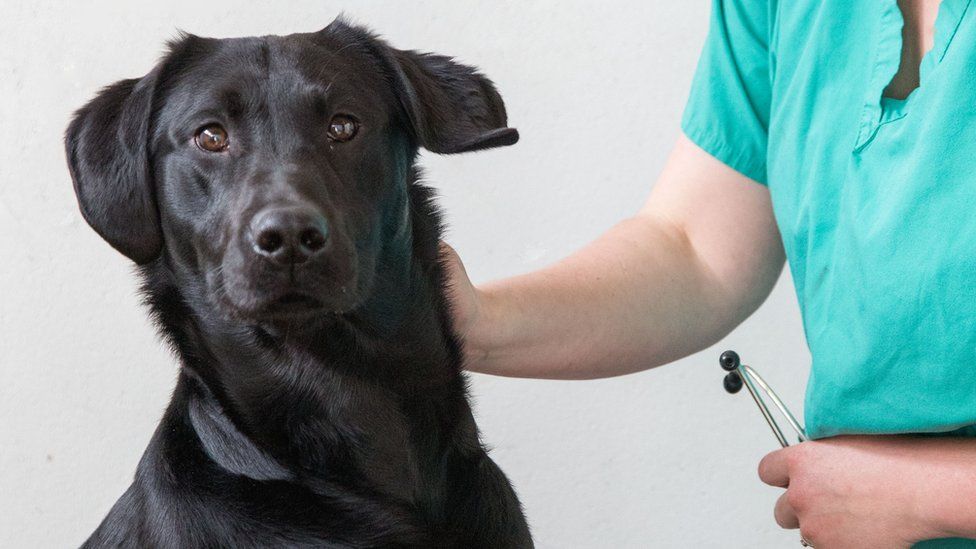Fat Labradors give clues to obesity epidemic
- Published

The Labrador retriever, known as one of the greediest breeds of dog, is hard-wired to overeat, research suggests.
The dog is more likely to become obese than other breeds partly because of its genes, scientists at Cambridge University say.
The gene affected is thought to be important in controlling how the brain recognises hunger and the feeling of being full after eating.
The research could help in the understanding of human obesity.
"About a quarter of pet Labradors carry this gene [difference]," lead researcher Dr Eleanor Raffan told the BBC.
"Although obesity is the consequence of eating more than you need and more than you burn off in exercise, actually there's some real hard-wired biology behind our drive to eat," she added.
Lifestyle factors
Canine obesity mirrors the human obesity epidemic, with lifestyle factors such as lack of exercise and high-calorie food both implicated - as well as genetics.
As many as two in three dogs (34-59%) in rich countries are now overweight.
The Labrador has the highest levels of obesity and has been shown to be more obsessed with food than other breeds.
Researchers screened more than 300 Labradors kept as pets or assistance dogs for known obesity genes in the study, published in the journal Cell Metabolism.
The international team found that a change in a gene known as POMC was strongly linked with weight, obesity and appetite in Labradors and Flat-Coated retrievers.
In both breeds, for each copy of the gene carried, the dog was on average 2kg heavier.
Other breeds of dog - from the Shih Tzu to the Great Dane - were also screened, but the genetic difference was not found.
However, the variation was more common in Labradors working as assistance dogs, which the researchers say might be because these dogs are easier to train by rewarding with food.
Human health 'lessons'
Intriguingly, the POMC gene is a rare cause of childhood obesity.
Dr Giles Yeo, a human geneticist from the University of Cambridge, worked on the study.
"What we have found is that some Labradors get fat because they have a deletion in a gene within their brain," he said.
"And this particular gene plays a role in sensing how much fat they have in their body - and so some Labradors don't know how much fat they have and so keep eating to try to get fatter."
Research suggests that over 100 genes influence body weight in humans. Most function within the brain and are involved in eating behaviour.
Using dogs as a model to study obesity could lead to a better understanding of the biology of the condition.
"Common genetic variants affecting the POMC gene are associated with human body weight and there are even some rare obese people who lack a very similar part of the POMC gene to the one that is missing in the dogs," Prof Stephen O'Rahilly of the Wellcome Trust-Medical Research Council Institute of Metabolic Science said.
"So, further research in these obese Labradors may not only help the wellbeing of companion animals but also have important lessons for human health."
The research was funded by the Wellcome Trust, the Medical Research Council and the Dogs Trust.
Follow Helen on Twitter.
- Published27 July 2010